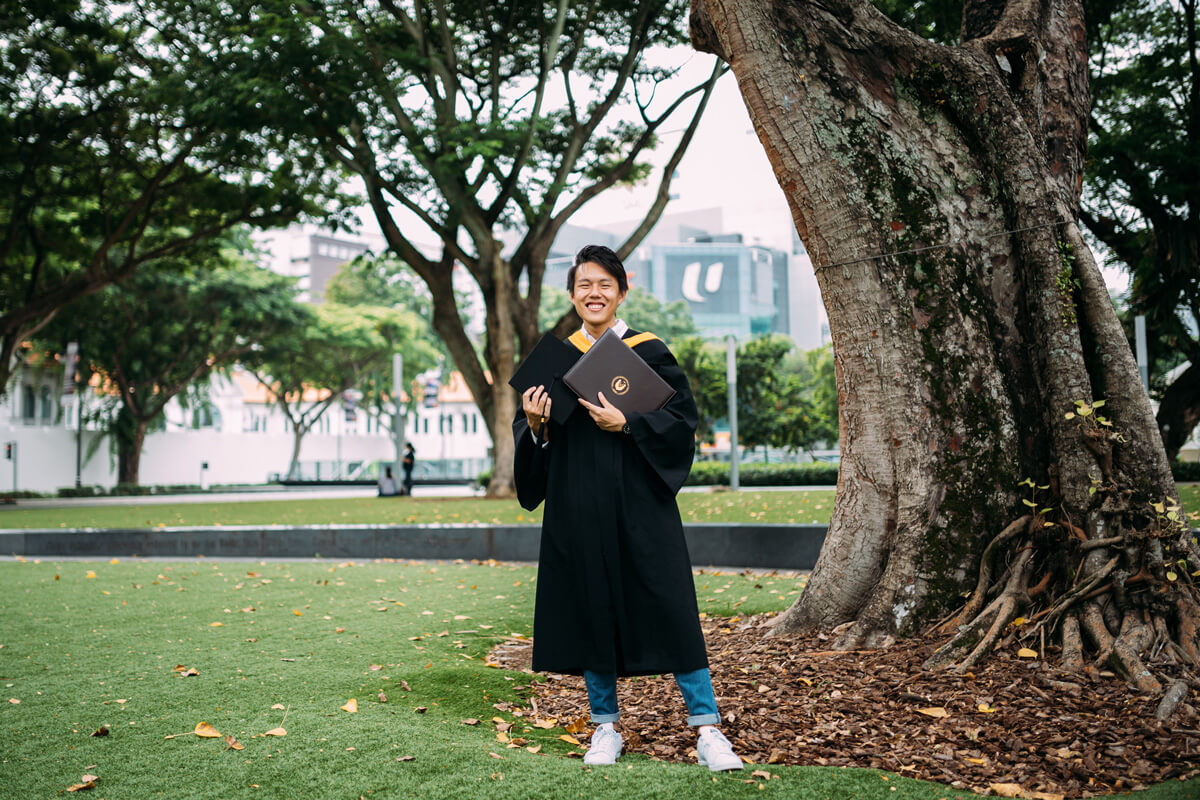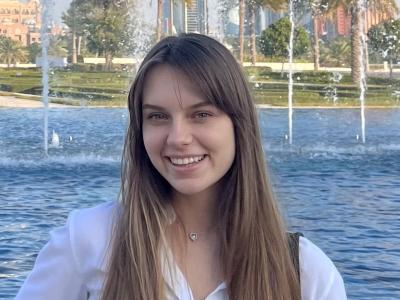
The Internet has become a major part of our everyday life. With that, comes the increasingly pertinent issue of cybersecurity and the urgent need to safeguard our information from online attacks. This fast-paced field where “learning never stops” is exactly why Tan Kee Hock chose to study at Singapore Management University’s (SMU) School of Information Systems (SIS) for his Bachelor’s degree in 2015.
He has since graduated from SMU and was named the DBS Bank School Valedictorian for the SIS Class of 2019. As he prepares for the working world, Kee Hock reflects on his days at SMU, where he learnt both hard and soft skills through the University’s unique pedagogy. As he puts it: “Technical skills can be honed by time and grit, but the ability to think critically requires some guidance.”
These are some of the reflections he shared in our interview with him:

What was your favourite module at SMU?
Business, Government and Society taught by Associate Professor Geng Xuesong. This preassigned module from my first semester focused on the relationship between these three entities, how they interact, and the impact of shifts in power among them. Understanding these relationships on a macro and micro level gave me a better grasp on current affairs, and provided me with deep insights and skills that will go a long way in my career.
What were two key skills you picked up at SMU?
While it is important for us to continuously learn and explore our chosen domain, it is equally important for us to apply what we learn. Learning and applying should come together so that we get to internalise new concepts.
My second takeaway is that when it comes to mastering skills, there are no shortcuts. Shortcuts cultivate bad habits and give us a false sense of confidence, so we believe that we are good at something we are not.
What co-curricular activities did you take part in and what did you learn from them?
I was Vice-President of the SMU Kendo Club in my second year, IT Director for SMU SIS Society, Ellipsis, in my third year, and President of the SMU SIS ACE programme in my final year. I’ve also participated in local and overseas community service projects, an SMU-X project with an external organisation, an exchange programme, and business study missions.
A highlight was my 2018 exchange programme with Universidad de las Américas Puebla in Mexico. It was an eye-opening experience as I had never been to Mexico, and living so far away from home for an extended period was a catalyst for my growth. I came home with a renewed perspective after witnessing how people in Mexico struggle with issues ranging from security, to education, to poverty, but are still content and eager to work hard.
What were the top highlights from your SMU experience?
Being a Teaching Assistant (TA) for IS203 (Software Engineering) was something that I won’t forget. IS203 is one of the key milestones for students in SIS, as it simulates an actual software project engagement where students are tasked to build a software product as specified by the teaching team.
Throughout the course, the project requirements change and the students must adapt. It gets quite stressful, so students would come to me (their TA) for help. I remember rushing to join their project meetings to help resolve both technical and non-technical issues, so it was rather hectic. But I was always glad to help.
If you could go back in time, what is one piece of advice you’d give your undergraduate self?
University is where you learn how to think, how to learn, and how to manage adversity. Most importantly, it provides a platform for you to learn how to conquer your own fears. It is where you can become ready for the workforce.
My advice is to be brave in pursuing the unknown, and take calculated risks while you can. Many of us grew up in environments where we don’t have to deal with uncertainty because we are sheltered from problems. Over time, we’ve stopped daring to go beyond our comfort zones, and developed difficulties adjusting to change. But the fact of the matter is, change is the only constant in the world.

